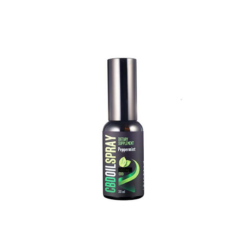There are pros and cons to using cannabis, but many users have been wondering whether cannabis use affects mortality. Although cannabis prohibition and laws (or a lack thereof) have made it quite difficult to conduct research and compile scientific data, there are some things we do know about how cannabis affects quality of life and life expectancy.
-
Zootly CBD Jellies Jar – Sour Apple (60mg)
R120.00 -
Zootly CBD Jellies Jar – Tutti Fruity (60mg)
R120.00 -
Reakiro – Hemp CBD Capsules
R349.00 – R499.00 -
Reakiro – Broad Spectrum CBD Oil Mouth Spray – Peppermint
R499.00 – R799.00
Studies On Cannabis And Life Expectancy
A scientific study of THC in the late 1990s yielded interesting results, although it was never formally published. The leaked results explained that varying doses of THC were given to rats while a control group received the exact same treatment and living conditions excluding THC doses. At the end of the study, the rats that had received THC had a significant survival advantage compared to the untreated control groups.
Although this conclusion seems quite intriguing, many researchers have cautioned against reading into the results. It is possible that the increased life expectancy of rats that were given THC may arise from various other factors and not just the fact that they were given THC.
Other factors that could have contributed to these results may include variables such as appetite, body weight, stress, or anxiety levels. However, the fact remains that the rats that received steady doses of THC all had a longer average life expectancy than the ones that did not receive THC.
The Ancillary Effects Of Cannabis On The Body
The main takeaway from the above-mentioned study is that cannabis may have its biggest impact on average life expectancy due to the ancillary benefits it produces. In other words, it is unclear if cannabis has a direct impact on your body that would make you live longer. Instead, there are many other things that the plant can do for you that could lead to a better overall state of health, which could increase your life expectancy.
One of the most prominent benefits of cannabis is its stress reduction property. This fact in itself has the potential to illustrate why people who use cannabis may live longer. Extreme stress has a detrimental effect on general health and life expectancy. This means that you will be able to increase your life expectancy by decreasing stress.
Additionally, cannabis use has yielded promising results in treating and/or decreasing numerous illnesses and a number of other negative health conditions. For example, cannabis is commonly used to help treat patients with cancer to decrease their side effects and aid in more aggressive forms of treatment.
Cannabis has also shown promising results in helping people who have epilepsy, arthritis, irritable bowel syndrome, insomnia, and a long list of other ailments.
Since most of these conditions have a negative impact on a person’s life expectancy, it is easy to conclude that cannabis use will be able to increase a person’s life expectancy by treating other conditions.
Cannabis And Your Brain
Cannabis has also shown promising results in maintaining neurological health. More specifically, researchers have found that cannabis use could potentially reverse the effects of aging on your brain.
In a 2017 study, the levels of brain activity in mice were monitored. One group of mice were given a daily dosage of THC, while the control group did not receive any THC. The results showed that the mice that received THC had much higher levels of brain activity than the control group.
This means that THC, cannabinoids, and related terpenes have the potential to encourage brain activity. In other words, THC can help to fend off the mental decline or “slowness” that comes with old age.
Additional research suggests that cannabis has the potential to treat or prevent other brain disorders as well. Many researchers suggest that cannabis may help to reduce or avoid the build-up of plaque in brain cells, which has been linked to Alzheimer’s disease.
Just like physical disorders, neurological disorders can contribute to a shorter life span. By alleviating or eliminating the harm caused by these issues, cannabis has the potential to extend your average life expectancy.
So, Will Weed Increase My Life Expectancy?
As we can deduce from conducted research, weed may be able to increase your life expectancy in an indirect manner. This is because it helps with other health issues rather than being a direct life extender.
There is also a lot of evidence suggesting that weed can produce a number of other health benefits. Cannabis has the potential to treat a number of physical disorders and mental illnesses, such as:
- Crohn’s disease
- Schizophrenia
- Alzheimer’s disease
- Sleep disorders
- Post-traumatic stress disorder (PTSD)
- Muscle spasms
- Eating disorders like as anorexia
- Immune system diseases such as HIV/Aids
- Multiple sclerosis
- Depression
- Glaucoma
- Epilepsy
- Anxiety
- Wasting syndrome (cachexia)
- Appetite loss
- Nausea
- Pain
- Inflammation
- Cancer
- Seizures
As cannabis aids in such a long list of disorders and illnesses, it is easy to see how weed can indirectly make you live longer.
Does The Consumption Method Of Cannabis Matter?
If you are looking to receive the maximal benefits from cannabis, you should be paying attention to how you consume it. Be sure that your cannabis is fresh and that it is not mixed with anything else. Smoking cannabis is also the most unhealthy method of consumption, so it is better to consume weed through vaping, edibles, and bongs.
What About The Frequency Of Use?
Prolonged cannabis consumption may have a negative impact on your health if you take large doses each time. Those who use high doses of cannabis for a long period tend to show more health problems by the age of 50 than those who consume cannabis in smaller doses and within intervals. However, this may not have anything to do with causality and may simply highlight a list of other demographic variables.
For example, someone who has a serious health condition may use marijuana to lessen the side effects of their condition. This means that they would be seen as having compromised health due to their pre-existing illness and not because of cannabis use itself. Therefore, cannabis aids people in alleviating symptoms of various illnesses instead of causing it.
When it comes to whether weed makes you live longer, we need much more research to fully understand how cannabis may interact with the human body. Cannabis shows promising results in treating a variety of different illnesses and disorders. It even yields promising results when it comes to preventing certain illnesses. It is, however, important to look at your method of consumption and frequency of use. All in all, the safe use of cannabis is key to maximize the benefits of using the plant.










